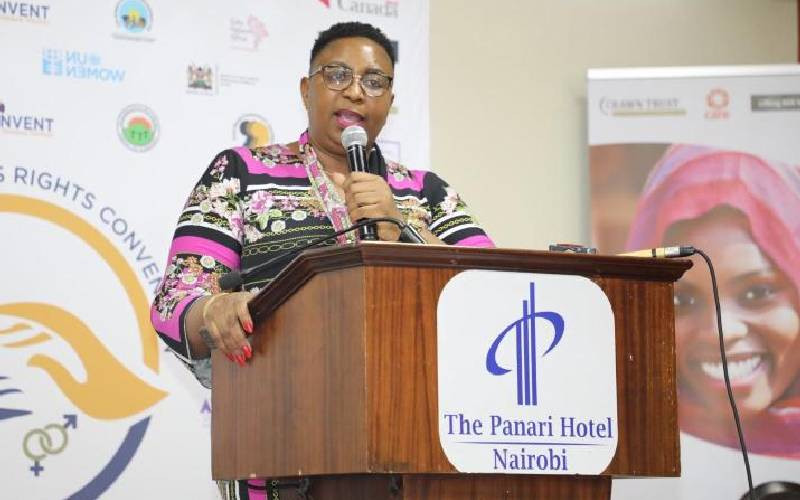
Constance Nyevu, 37, feels betrayed by her in-laws, who humiliated and abused her after her husband’s burial.
The mother of five who hails from Chasimba in Chonyi, Kilifi South, said her in-laws turned against her despite pledging to support her during the funeral.
“My husband’s death in a road accident devastated me. But I foolishly believed promises from my in-laws who later turned against me. They disinherited me and my children,” she said.
She claimed that the scheme was to disinherit her and take over the three acres of the ancestral land where the husband had built their home.
Nyevu was evicted from the home barely a month after her husband’s burial.




“I was told that since I don’t have a son who can be an heir, my daughters and I cannot inherit the land,” she said.
“They gave me the option of being inherited as a second wife to one of my late husband’s brothers so that I could bear a son and secure my place in the family’s inheritance. I refused, and they sent me packing to my father’s house with the children,” she added.
Nyevu is not the only widow who has endured suffering at the hands of her in-laws.
Mbodze Mumbo from Kaloleni, was allegedly accused by her in-laws of bewitching her husband to death.
“His family ostracized my children and i the moment the mourners left after my husband’s burial, and started insulting us,” she said.
“They started calling my children and i names, to the extent of even accusing me of having bewitched my late husband,” she added.
Mumbo was forced to move to her parents’ home. “Although my parents welcomed me, I felt like I was a burden to them, so I had to move out, and today I survive on casual jobs,” she said.
The stories of Nyevu and Mbodze mirror those of many widows in Kilifi who have been disinherited and endure financial hardships to fend for their children.
A section of the community in Kilifi still believes that only sons deserve inheritance.
Stay informed. Subscribe to our newsletter
“You cannot entrust land to a girl who will later get married and utilize the land with her husband. However, when a boy receives land, it stays within his family line for generations, as he won’t transfer it to another family,” Kazungu Mlandi said.
However, Mlandi said girls should strive to get land from their husbands once they get married to secure their children’s future.
“Many chiefs and village elders here frustrate widows seeking land rights. This is deeply rooted in the culture,” said Elizabeth Muthoka, a representative for widows in Kilifi.
“Widows seeking land inheritance could not get justice because of some chiefs who still believe that women cannot own land,” she said.
She insisted that whatever a man leaves behind belongs to his widow and children.
Muthoka called for community sensitisation on land rights.
“All must respect the right of women and girls to own land at all costs,” she said.
Kenya Roads Board Chairperson Aisha Jumwa, said there is a need for a law to safeguard the rights and welfare of widows across the country.
The former CS emphasised that while Kenya has several laws addressing general women issues, there is a glaring gap in legislation that protects widows.
“We have laws like the Matrimonial Property Act and the Sexual Offences Act, but widows are a special category that deserves a dedicated legal framework,” she said.
Jumwa said that several non-governmental organisations support widows, but their work lacks a solid legal foundation to effectively defend and advance their rights.
She revealed that a Bill aimed at addressing the plight of widows is currently being drafted, with input from a coalition of legal experts, civil society actors, and grassroots stakeholders.